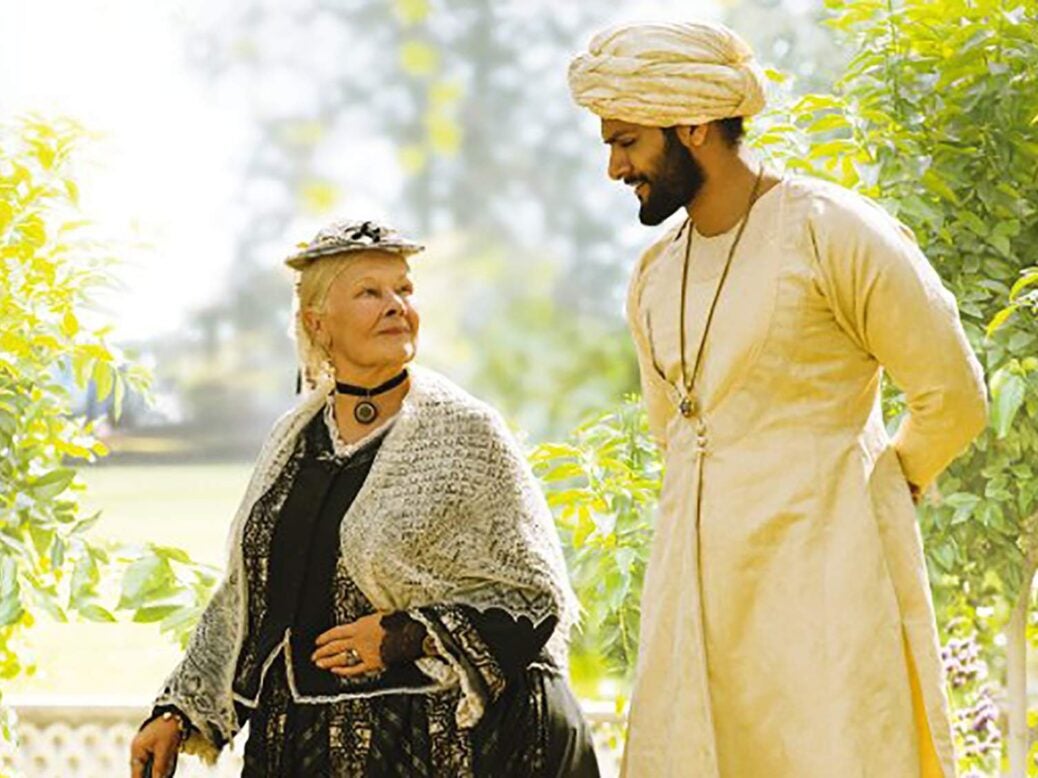
From what begins as a mismatched encounter between Queen Victoria and a young muslim Indian blossoms a heartfelt friendship, but does their relationship portray any cultural significance? Sophie Killip reviews
Queen Victoria sits at the head of an immense, opulent ceremonial banquet table, ignoring the other guests around her. She shovels food into her mouth and throws her cutlery down, finished. The other guests react with shock and surprise as their barely eaten portions are swiped from their places – when the Queen is finished, so must everyone else be. When married with an upbeat soundtrack, this is amusing – and off-putting.
As one of the opening scenes of Victoria and Abdul, directed by The Queen’s Stephen Frears, the dinner shows a less-than-pleasant side of royal etiquette. Already, Dame Judi Dench as Her Majesty has captured our full attention: Queen Victoria is gluttonous and exhausted, falling asleep at the dinner – after all, she is in her eighties. The film opens during her Golden Jubilee celebrations, and quickly leaves the royal decorum behind, focusing instead on the delightful (and deeply controversial) friendship struck between the Queen and a young Muslim Indian, Abdul Karim, who has been plucked from India to present the Queen-Empress with a ceremonial Indian coin.
Somehow, the bond forged between Abdul and Queen Victoria brings new life into the old Queen. And the chemistry – ignoring age, class and culture – is electric; albeit one carried primarily by Dench, whilst Ali Fazal, as Abdul, mostly holds his own. He is energetic and responsive, if occasionally seeming flat. Although, as the Queen remarks over breakfast, he is ‘rather handsome’.
The tale behind the film is extraordinary. From what begins as a mismatched encounter – Abdul ignores the specific instruction repeated to him again and again: ‘Do not look at Her Majesty’ – blooms a genuine, heartfelt friendship between the unlikeliest of individuals. It allows the audience a fresh, quiet glimpse into the life of the woman behind the title. What is even more astounding is that Victoria and Abdul is based on (mostly, the film admits) a true story. Abdul’s private journals were found in 2010, more than a hundred years after he befriended the Queen. Studied and published by journalist Shrabani Basu, the truth of the phenomenal companionship has finally been brought to life on screen.
If it sounds a little familiar then that’s precisely because it is: 20 years ago Judi Dench had her first incarnation as Queen Victoria in Mrs Brown, opposite Billy Connolly, who played the Highland gillie John Brown, another unlikely winner of the real-life sovereign’s affections. Unlike Mrs Brown however, it’s hard to see Victoria and Abdul making off with a haul of Baftas and a Golden Globe.
For comedic and touching it might be, but what Victoria and Abdul lacks is any real punch and is robbed of true novelty by its predecessor. The stakes are low, and though the film’s end leaves a somewhat bitter taste in one’s mouth, a message is lacking. Queen Victoria comes across as open-minded and as the Empress of India seems interested in Indian cultures. The King—Emperor-to-be (played by Eddie Izzard), and Victoria’s household staff, remain pompous and ‘racialist’. They spit with rage and plot against Abdul as his stature rises to Victoria’s Munshi, or spiritual advisor. However, any real political or racial significance is lost, with the film instead focusing on the personal relationship between our protagonists. It really could have done more.






